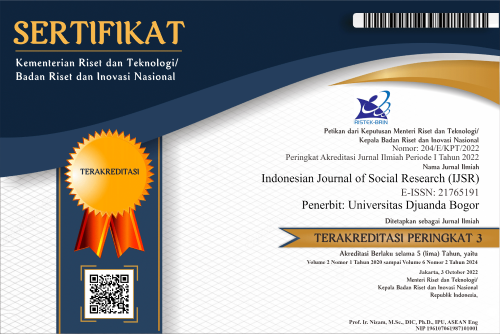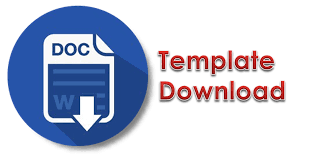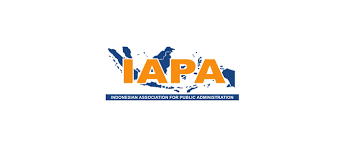Evaluating Attributes, Traits, and Competencies of a School Leader: A Descriptive-Correlational Study
Abstract
Evaluation of the different characteristics of a school leader in the Philippines is a bit limited in educational literature. Hence, this study focus on assessing the personal attributes, traits, and competencies of school leaders in the Hindang District, Leyte Division, Philippines to elucidate its nature and promote new policy in improving the educational system. This study employed a cross-sectional data gathering from a complete enumeration of teachers in the district. Mean, standard deviation, and coefficient of variation were computed in describing the survey data, and Spearman rho correlation was utilized in determining the association between variables. Results showed that school leaders are rated as "very satisfactory" concerning their "personal attributes", "traits", "result-focus", "self-orientation", "innovation", "leading people", "people performance and management", and "people development" characteristics. School leaders are also rated as "outstanding" in terms of their competencies such as "self-management", "professionalism and ethics", and "teamwork." The correlation matrix revealed that all the characteristics of a school leader are positively correlated (strong) to each other at a 1% level of significance. Hence, it is concluded that each character is a very important asset for a school leader in developing the school. This implies that to attain continuous progress in a school, the qualification in hiring a school leader must focus on personal attributes, traits, and competencies, not on the curriculum knowledge. Furthermore, a school leader must undergo seminars and training that deal with lead management and innovative ideas to become globally competitive leaders.
References
Acton, K. S. (2021). School leaders as change agents: do principals have the tools they need?. Management in Education, 35(1), 43-51. https://journals.sagepub.com/doi/abs/10.1177/0892020620927415
Algahtani, A. (2014). Are leadership and management different? A review. Journal of management policies and practices, 2(3), 71-82. http://jmppnet.com/journals/jmpp/Vol_2_No_3_September_2014/4.pdf
Atay, M., & Danju, I. (2012). Analysis of 1st grade and 5th grade textbooks and primary school student's views about personal traits in gender role in society. Procedia-Social and Behavioral Sciences, 47, 64-73. https://www.sciencedirect.com/science/article/pii/S1877042812023506
Băeșu, C., & Bejinaru, R. (2015). Innovative leadership styles and the influence of emotional intelligence. The USV Annals of Economics and Public Administration, 15(3), 136-145. http://annals.seap.usv.ro/index.php/annals/article/viewArticle/814
Bennis, W. G. & Nanus, B. (1997). Leaders: The Strategies for Taking Charge. HarperCollins, New York. http://coachjacksonspages.com/44.pdf
Bird, J. J., Dunaway, D. M., Hancock, D. R., & Wang, C. (2013). The superintendent's leadership role in school improvement: Relationships between authenticity and best practices. Leadership and Policy in Schools, 12(1), 77-99. https://www.tandfonline.com/doi/abs/10.1080/15700763.2013.766348
Branch, G. F., Hanushek, E. A., & Rivkin, S. G. (2013). School leaders matter. Education Next, 13(1), 62-69. https://eric.ed.gov/?id=EJ1008235
Bravo, R., Catalán, S., & Pina, J. M. (2019). Analysing teamwork in higher education: An empirical study on the antecedents and consequences of team cohesiveness. Studies in Higher Education, 44(7), 1153–1165. https://doi.org/10.1080/03075079.2017.1420049.
Cambron-McCabe, N., & McCarthy, M. M. (2005). Educating school leaders for social justice. Educational policy, 19(1), 201-222. https://doi.org/10.1177/0895904804271609
Casinillo, L., & Guarte, J. (2018). Evaluating the effectiveness of teaching strategies: the case of a national vocational school in Hilongos, Leyte. Review of Socio-Economic Research and Development Studies, 2(1), 65-80. https://papers.ssrn.com/sol3/papers.cfm?abstract_id=3804151
Casinillo, L. F., & Suarez, M. G. (2021). On Characterizing School Leaders: Evidence from Hindang District, Leyte Division, Philippines. JPI (Jurnal Pendidikan Indonesia), 10(2), 325-334. https://ejournal.undiksha.ac.id/index.php/JPI/article/view/30350
Ceri-Booms, M., Curşeu, P. L., & Oerlemans, L. A. (2017). Task and person-focused leadership behaviors and team performance: A meta-analysis. Human Resource Management Review, 27(1), 178–192. https://doi.org/10.1016/j.hrmr.2016.09.010.
Choi, Y. G., & Cho, K. T. (2020). Analysis of safety management characteristics using network analysis of CEO messages in the construction industry. Sustainability, 12(14), 5771. https://www.mdpi.com/2071-1050/12/14/5771
Cronbach, L. J. (1951). Coefficient alpha and the internal structure of tests. Psychometrika, 16, 297–334. https://doi.org/10.1007/BF02310555
Eisner, S. (2011). Reflections on leadership. SAM Advanced Management Journal, 76(4), 47. https://www.proquest.com/openview/cf38a792d3203c329a65f9bd0b7973c6/1?pq-origsite=gscholar&cbl=40946
Giawa, T., Montessori, M., & Yusuf, M. (2021). An Analysis of the Teachers Professionalism Performance of Pancasila and Civic Education at Padang City. JMKSP (Jurnal Manajemen, Kepemimpinan, dan Supervisi Pendidikan), 6(2), 236-258. https://matematika.univpgri-palembang.ac.id/JMKSP/article/view/5594
Goolamally, N., & Ahmad, J. (2014). Attributes of School Leaders Towards Achieving Sustainable Leadership: A Factor Analysis. Journal of Education and Learning, 3(1), 122-133. https://eric.ed.gov/?id=EJ1076798
Gundy, M. S., & Berger, M. J. (2016). Towards a model supporting educational change. International Journal of Information and Education Technology, 6(3), 232–236. http://www.ijiet.org/vol6/691-EI1006.pdf
Gurr, D. (2015). A model of successful school leadership from the international successful school principalship project. Societies, 5(1), 136-150. https://doi.org/10.3390/soc5010136
Hallinger, P. (2020). Science mapping the knowledge base on educational leadership and management from the emerging regions of Asia, Africa and Latin America, 1965–2018. Educational Management Administration & Leadership, 48(2), 209-230. https://journals.sagepub.com/doi/abs/10.1177/1741143218822772
Hallinger, P., & Hammad, W. (2019). Knowledge production on educational leadership and management in Arab societies: A systematic review of research. Educational Management Administration & Leadership, 47(1), 20-36. https://journals.sagepub.com/doi/full/10.1177/1741143217717280
Harris, A., Azorín, C., & Jones, M. (2021). Network leadership: a new educational imperative?. International Journal of Leadership in Education, 1-17. https://doi.org/10.1080/13603124.2021.1919320
Jenkins, J., & Pfeifer, R. S. (2012). The Principal as Curriculum Leader. Principal Leadership, 12(5), 30-34. https://eric.ed.gov/?id=EJ975835
Kang, W. (2021). Explaining Effects of Transformational Leadership on Teachers’ Cooperative Professional Development through Structural Equation Model and Phantom Model Approach. Sustainability, 13(19), 10888. https://www.mdpi.com/2071-1050/13/19/10888
McKinney, C. L., Labat Jr, M. B., & Labat, C. A. (2015). Traits possessed by principals who transform school culture in national blue ribbon schools. Academy of Educational Leadership Journal, 19(1), 152-166. https://www.proquest.com/openview/e9889b0f7d2c6d55a1f9a1d86751746d/1?pq-origsite=gscholar&cbl=38741
Pollock, K (2016) Principals' work in Ontario, Canada: changing demographics, advancements in information communication technology and health and well-being. International Studies in Educational Administration, 44(3), 55–73. https://ir.lib.uwo.ca/edupub/206/
Rhee, H., Grape, A., Tumiel‐Berhalter, L., Wicks, M., Sloand, E., & Butz, A. (2020). Fidelity of a peer‐led asthma self‐management intervention and its attention control in a multisite study of urban adolescents. Research in nursing & health, 43(2), 195-205. https://onlinelibrary.wiley.com/doi/abs/10.1002/nur.22001
Richardson, J. W., Flora, K., & Bathon, J. (2013). Fostering a School Technology Vision in School Leader. International Journal of Educational Leadership Preparation, 8(1), 144-160. https://eric.ed.gov/?id=EJ1012953
Ten Bruggencate, G., Luyten, H., Scheerens, J., & Sleegers, P. (2012). Modeling the influence of school leaders on student achievement: how can school leaders make a difference?. Educational administration quarterly, 48(4), 699-732. https://doi.org/10.1177/0013161X11436272
Thompson, S. (2013). Hidden strength: Encouraging spiritual leadership attributes among school leaders. Kentucky Journal of Excellence in College Teaching and Learning, 10(2012), 9. https://encompass.eku.edu/cgi/viewcontent.cgi?article=1037&context=kjectl
Uhl-Bien, M., & Arena, M. (2017). Complexity leadership: Enabling people and organizations for adaptability. Organizational Dynamics, 46(1), 9–20. https://doi.org/10.1016/j.orgdyn.2016.12.001
Copyright (c) 2022 Indonesian Journal of Social Research (IJSR)

This work is licensed under a Creative Commons Attribution-ShareAlike 4.0 International License.
The Authors submitting a manuscript do so on the understanding that if accepted for publication, copyright publishing of the article shall be assigned/transferred to Indonesian Journal of Social Research (IJSR) Universitas Djuanda as Publisher of the journal. Upon acceptance of an article, authors will be asked to complete a 'Copyright Transfer Agreement'. An e-mail will be sent to the corresponding author confirming receipt of the manuscript together with a 'Copyright Transfer Agreement' form by online version of this agreement.
Indonesian Journal of Social Research (IJSR) Universitas Djuanda, the Editors and the Editorial Board make every effort to ensure that no wrong or misleading data, opinions or statements be published in the journal. In any way, the contents of the articles and advertisements published in the Indonesian Journal of Social Research (IJSR) Universitas Djuanda are sole and exclusive responsibility of their respective authors and advertisers.
Remember, even though we ask for a transfer of copyright, our journal authors retain (or are granted back) significant scholarly rights as mention before.
The Copyright Transfer Agreement (CTA) Form can be downloaded here: Copyright Transfer Agreement-IJSR 2020
The copyright form should be signed electronically and send to the Editorial Office e-mail below:
Dr. Rasmitadila, M.Pd (Editor-in-Chief)
Universitas Djuanda
Jl. Tol Jagorawi No.1, Ciawi, Kec. Ciawi, Bogor, Jawa Barat 16720
Website: http://journal.unida.ac.id/index.php/IJSR/index
Email: ijsr@unida.ac.id





4.png)



